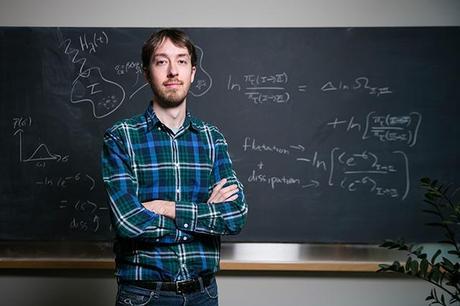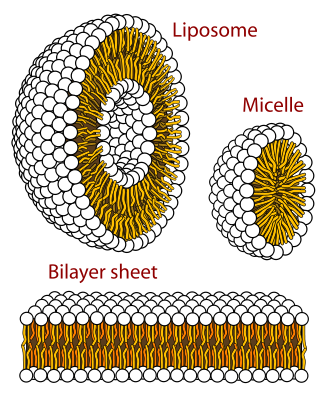I have in all my time of reading science, and science news, never quite experienced the absolute abstraction of objectivity, as I did this morning. For the first time I found myself emotional, and even partially conflicted, upon reading about Professor Jeremy England, and his approach to explaining the physics of the origin of life.

Professor Jeremy England and his work on A New Physics Theory of Life.
The question of the origin of life, and the origin of selection and evolution, has plagued me for extended periods of time, since I first prepared a paper on evolution as an undergraduate. I have also recently wrote a partially coherent bit about the second law of thermodynamics and biology, which was a subtle attempt at making a connection between the quantum world and biology.
The origin of evolution
It has long been assumed and argued that the origin of the first complex molecules, capable of self replication was the result of a unique set of conditions (primordial soup), and a few strokes of luck (lighting or similar) in conditions thought to prevail on earth around 3.5 billion years ago. This summary explanation accounts for the formation of the majority of amino acids from inorganic precursors, resulting in what is commonly referred to as the primordial soup followed by the “spontaneous” assembly of these components into complex, self replication units, and ultimately, systems of self replicating units. As soon as any of these units can exert some influence on its replication probability, natural selection kicks in and life becomes inevitable.
Where there has been very little investigation from evolutionary biologists, is where the discipline of evolution transitions away from biology and chemistry and enters the realm of quantum physics. The fundamental question about evolution is no longer how complex life forms can evolve from simpler life forms, but rather, how do these first life forms come into existence, and more importantly, why? This raises the question of life itself, and has been addressed by some of history’s most influential figures. Schrödinger himself wrote on this topic.
Selection at quantum level
Now however, Professor England has succeeded in publishing the first coherent theoretical model of the origin of life, that relies not on low probabilities and luck, but the notion that the second law of thermodynamics provides the framework that increases the probability of the existence of life. This model does not assume life to be a fortuitous result of “just the right” conditions, but proposes that life is an inevitable result of the same fundamental forces that causes your coffee to cool down.
If my understanding of their thesis, and my intuition serves accurate, then life will result necessarily because the selection between combinations of particles, and their ability to facilitate the distribution of energy, i.e. the second law of thermodynamics. Seemingly complex arrangements of matter at a molecular level, serves to increase the gradient between the various organizational states of energy, and in this manner, the arrangements that are more efficient at distributing energy, become more numerous, as they have a greater probability of existing than alternative arrangements. Selection at quantum level one is tempted to say.
There is more to this argument, as this the spontaneous assembly of complexity is not so uncommon in modern times as you would imagine. Snowflakes have seemingly complex molecular arrangements that cannot be explained unless the probability of their particular [complex] molecular assembly is not overwhelmingly favoured. If snowflakes assemble in complex formation all around the world every day, then it is not a stretch to imaging that there is a fundamental similarity between this and the formation of complex chemical arrangements, such as those required for the existence of life. An example of this is the high probability of the organization of lipid membranes in water into bilayer structures, that are itself a fundamental requirement for the existence of life.

Phospholipid bilayer assembly in water.
The future is exciting
The concept of selection is an enormously powerful concept, and one fundamental to explaining the complexity and diversity of life. However, there is reason to be excited, as the physics of the origin of life, may hold yet more answers about the everyday workings of life. If this model can be extended to include and make room for selection at molecular and quantum level, then we will go a far way to explaining and understanding a whole lot more about ourselves, life in general, and the possibility of life elsewhere in the universe.


